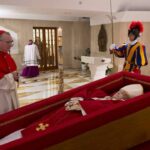THE WORLD BANK HAS ANNOUNCED THAT IT IS ALLOCATING $200M (£120M) IN EMERGENCY ASSISTANCE FOR WEST AFRICAN COUNTRIES BATTLING TO CONTAIN THE EBOLA OUTBREAK
Published on August 6, 2014 at 8:30 AM by FACE OF MALAWI
The money will be distributed to the governments of Liberia, Sierra Leone and Guinea as well as to the World Health Organization (WHO).
The number of people killed in the outbreak has reached 887, the WHO says.
The World Bank’s announcement came as African leaders including 35 presidents discuss the crisis in Washington.
World Bank President Jim Yong Kim – an expert on infectious diseases – said that he was “deeply saddened” by the spread of the virus and how it was contributing to the breakdown of “already weak health systems in the three countries”.
“I am very worried that many more lives are at risk unless we can stop this Ebola epidemic in its tracks,” he said.
The BBC’s Paul Blake in Washington says that in the short term, the money will be used to pay health workers, dispel rumours about the disease in local communities and address the immediate needs of getting sick people into health facilities.
Over the long term, our correspondent says, the funds will be used to help countries deal with the economic impact of the outbreak and to monitor the spread of the disease.
The package is now awaiting approval by the World Bank’s Board of Directors, though officials say the confirmation could come as early as this week.
The World Bank and International Monetary Fund say preliminary research suggests the epidemic is likely to shave one percentage point from Guinea’s economic output this year.
In other developments:
• Nigeria has recorded its second Ebola case – one of the doctors who treated a man who died from the virus after his arrival from Liberia
• Liberia has ordered that the bodies of people killed by the Ebola virus must be cremated following the refusal of some communities to allow the burial of victims on their land.
The virus spreads by contact with infected blood and bodily fluids.
Touching the body of someone who has died of Ebola is particularly dangerous.
The evacuation of the second US health worker to become infected inLiberia is expected later.
Nancy Writebol will be flown to Atlanta in the US to a special isolation ward at Emory University Hospital, where Dr Kent Brantly, who arrived from Liberia on Saturday, is being treated by infectious disease specialists.
• Symptoms include high fever, bleeding and central nervous system damage
• Fatality rate can reach 90%
• Incubation period is two to 21 days
• There is no vaccine or cure
• Supportive care such as rehydrating patients who have diarrhoea and vomiting can help recovery
• Fruit bats are considered to be virus’ natural host
On Friday, Margaret Chan, head of the World Health Organization, met the leaders of Guinea, Liberia and Sierra Leone to launch a new $100m (£59m) Ebola response plan.
According to the UN, more than 60 of the Ebola deaths so far have been health care workers.
There is no cure or vaccine for Ebola – but patients have a better chance of survival if they receive early treatment.
The current outbreak is killing between 50% and 60% of people infected.


